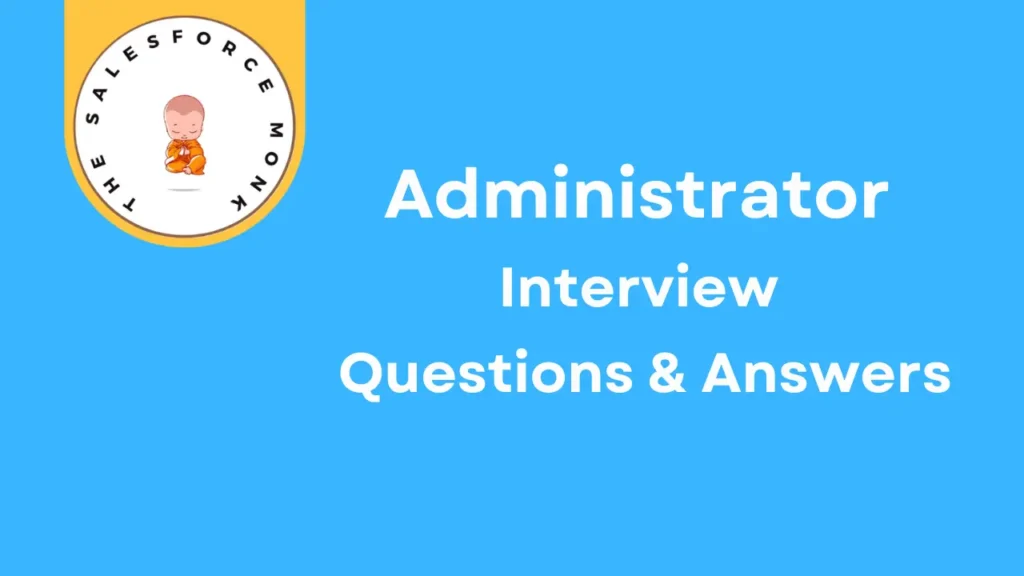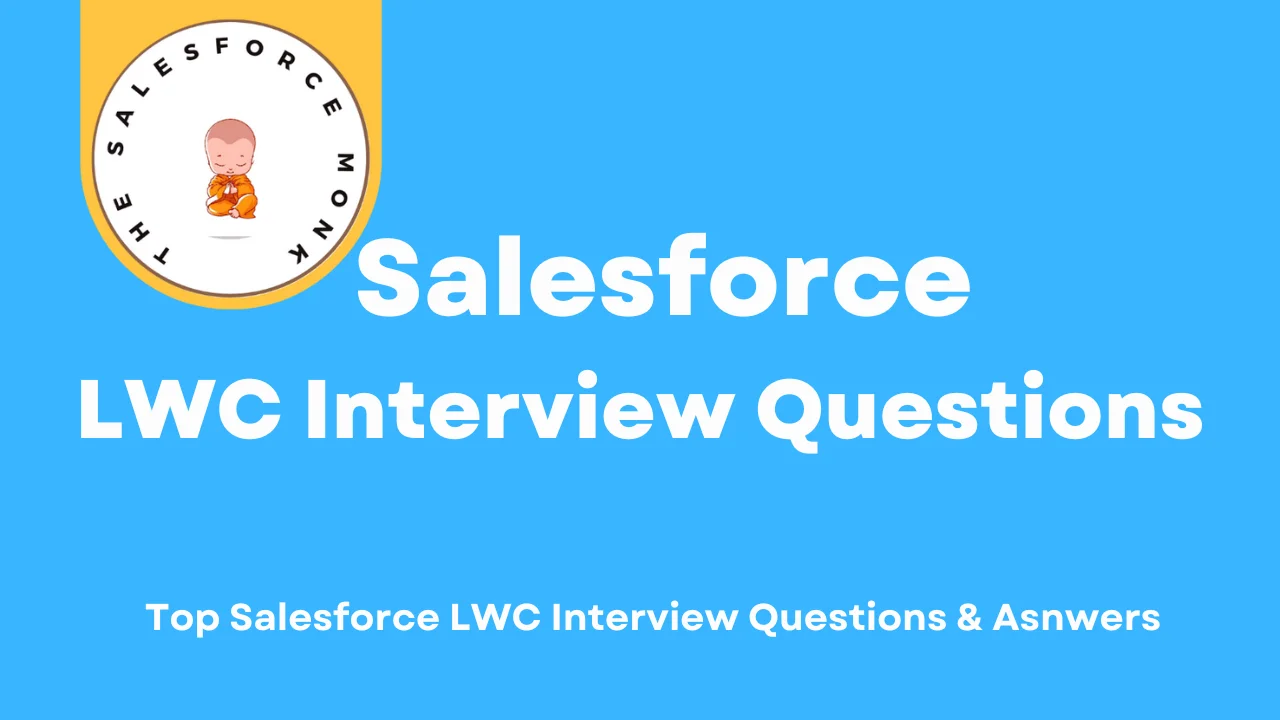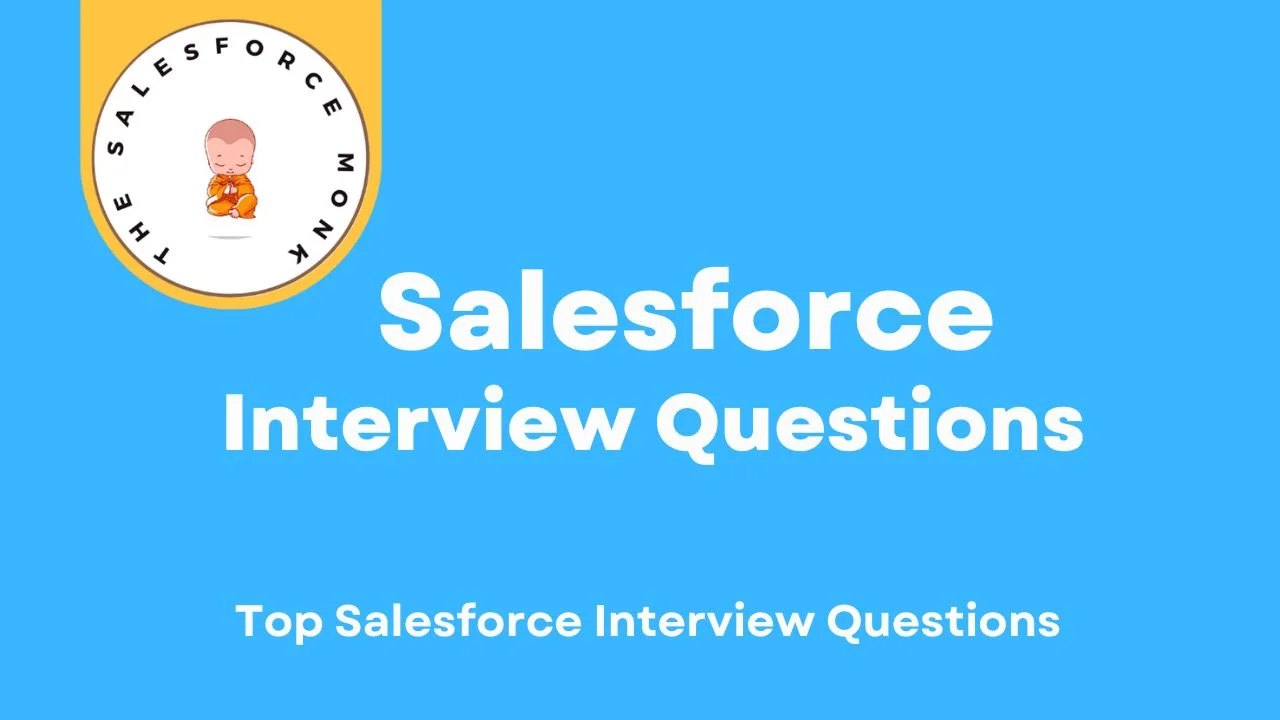Are you struggling with Salesforce Admin Interview Questions? We’ve all been there. You start preparing for the interview, but finding the right study material and relevant questions can be a challenge. I remember facing a similar situation where I didn’t have access to well-structured Salesforce administrator interview questions and answers, making the preparation process overwhelming.
But what if there was a simpler, more effective way to prepare without relying on scattered or incomplete resources?
This blog provides a comprehensive list of essential Salesforce Admin Interview Questions & Answers, helping you gain confidence and improve your chances of success. Don’t wait, dive into the top Salesforce Admin Interview Questions & Answers. Enhance your knowledge and make a strong impression in your Salesforce Admin interview!
Salesforce Admin Interview Questions & Answers
Below is a comprehensive list of commonly asked admin interview questions for Salesforce professionals. These questions and answers will help you build a strong foundation, boost your confidence, and succeed in your Salesforce admin interviews.
What is Cloud Computing?
Cloud computing is the on-demand availability of computing resources. The computer services delivered over the internet include databases, servers, and software.
What is IaaS?
IaaS stands for Infrastructure as a Service. It is a cloud computing model where infrastructure is provided over the internet as a service like hosting, server, storage services, etc.
What is PaaS?
PaaS stands for Platform as a Service. It is a cloud computing model where a third-party provider creates a platform for customers. To deploy, run, and maintain their applications without any concerns like security and infrastructure.
What is SaaS?
SaaS stands for Software as a Service. It is a cloud computing model where software is provided over the internet as a service.
Is Salesforce a Saas or Paas?
Salesforce provides various on-demand services. And also, Salesforce provides a platform to create new applications. Therefore, Salesforce is both Paas and Saas.
What is Salesforce?
Salesforce is a cloud-based CRM. Customer Relationship Management is a term used for managing a firm’s relationship and interaction with customers. Similarly, Salesforce provides a wide range of cloud applications like Marketing Cloud, Service Cloud, Sales Cloud, and many more.
What is a Profile?
The profile sets the boundaries or limitations for a user in Salesforce. It is a mandatory field and it provides necessary permission to the user. You can define profile by the user’s job function. For example System Administrator, Developer, Sales Representative. A profile can be assigned to many users but, a user can be assigned a single profile at a time.
Types of Profile in Salesforce?
- Standard profile
- By default, Salesforce provides below-standard profiles. We cannot delete standard ones. Standard User, Marketing User, System Administrator, etc.
- Custom profile
- Custom roles created by users can be removed, provided there are no assigned users to that specific role.
What is a Role?
By using Role we can share the records in the hierarchy. The role comes into play if OWD is not set to private. We need to enable “Grant access using Hierarchies” in the OWD.
What is Sandbox and the Type of Sandbox in Salesforce?
Sandbox is a secure and isolated testing environment that allows organizations to develop, test, and deploy changes. Similarly, new features are deployed without affecting their production (live) environment. Therefore, Sandboxes are crucial for maintaining the stability and integrity of a Salesforce organization while making changes or updates.
Types of Sandbox in Salesforce
There are 4 types of Salesforce sandbox environments.
- Developer Sandbox
- Developer Pro Sandbox
- Partial Copy
- Full Sandbox
What are the different editions available in Salesforce?
- Essentials
- Starter
- Professional
- Enterprise
- Unlimited
- Developer
Check out the official blog on Salesforce Edition by Salesforce.
What is an Object in Salesforce?
The object in Salesforce acts like a database table that stores data for a specific type of record. There are two types of objects in Salesforce. Standard objects are available by default in org, such as Accounts, Contacts, Opportunities, etc. Whereas, we can create Custom Objects as per the business requirements.
What are external objects in Salesforce?
External Objects in Salesforce are a way to access and interact with data residing outside the Salesforce platform
Types of Relationships in Salesforce?
The different types of object relationships in Salesforce are:
- Lookup Relationship (1:n): It is a loosely coupled relationship that allows connecting two objects in Salesforce. Meanwhile, if the parent record gets deleted, the child record remains in the system.
- Master-Detail Relationship (1:n): It is a tightly coupled relationship that allows connecting two objects in Salesforce. Meanwhile, if the parent record gets deleted, the child record also gets deleted in the system. We can also the roll-up summary fields.
- Many-to-Many Relationships (n:n): We can create a junction object to establish many-to-many relationships. Meanwhile, the junction object will act as a detail, and the other two will be a master. For example, an opportunity product is a junction object for opportunity and product objects.
- Self-relationship: A Self-Relationship is a lookup relationship to the same object. For example, the parent account field on the Account object will allow us to connect the Account record as a parent of an existing record.
What is the relationship between Account & Opportunity in Salesforce?
While they have a lookup relationship, they also feature a cascade delete property. Consequently, if a record in the Account object is deleted, its associated opportunity records are automatically removed as well.
How to convert a Master-detail relationship between two objects to a Lookup relationship?
The following points are to be considered before converting a master-detail relationship to a lookup relationship:
- Verify if the field creating the Master-detail relationship is used in any automation tools, apex classes or triggers.
- Delete all the roll-up summary fields on the Parent object.
How many lookup relationships can be created in an object?
You can create a maximum of 40 lookups on an object.
What are Roll-Up Summary Fields?
Roll-Up Summary Fields calculate data from related child records and show the output on the master record. There are a variety of functions, including SUM, COUNT, MIN, MAX, and AVG. Also, we can create 40 roll-up summary fields per object.
What is Page Layout?
The system determines which fields to display to your user on a record based on the page layout. They allow you to add fields, sections, custom buttons, and a few other features.
What is Record Type?
Record Types let you offer different business processes, picklist values, and page layouts to different users. By using Record Type, you can apply multiple page layouts per object, per user & profile.
Difference between setup and non-setup objects.
In Salesforce, setup objects are mainly about setting up and managing the system. Examples of setup objects include User, Profile, Role, Permission Set, and Organization. These objects hold important details that control how Salesforce works and ensure its security.
Objects like the standard ones that come with Salesforce and the ones we create ourselves (Custom Objects) are considered Non-Setup Objects. It’s essential to know that we can’t make changes to both setup and non-setup objects in the same transaction.
What are the org-wide default or OWD settings in Salesforce?
Organization-wide defaults (OWD) in Salesforce establish the foundational level of access that the most restricted user within the organization should possess. These defaults play a crucial role in access control, acting as a framework to limit access to records.
What are custom metadata types in Salesforce?
Creating a Custom Metadata Type in Salesforce is akin to crafting custom objects or custom settings. The unique aspect is that the records within a custom metadata type are considered metadata, not regular data. Both the Custom Metadata Type and its records can be moved from one Salesforce organization to another during deployment.
An important advantage is that Custom Metadata types do not contribute to the SOQL query limit for each APEX transaction, providing flexibility in managing and deploying metadata configurations.
What are validation rules in Salesforce?
Validation rules are used to ensure that data entered into records meets specific criteria before the records can be saved. These rules help maintain data integrity and accuracy by preventing users from entering invalid or inconsistent information.
When are validation rules triggered in Salesforce?
Whenever a record on an object is created or updated a validation rule is triggered.
How to configure a custom mobile number field so the user always enters the value in the following format 123-456-789?
The Regex() function along with validation rules can be used to validate if the mobile number entered by the user is in the correct format or not.
How can a Salesforce Administrator check the edition of their Salesforce org?
The administrator can navigate to Company information from the Setup menu and find details about the edition of their Salesforce org.
What is Schema Builder?
The Schema Builder in Salesforce is like a picture tool for creating and changing how data is organized. With this tool, folks like administrators, developers, and architects can easily make and control custom objects, connections, and fields in the Salesforce platform.
How many ways we can share a record in Salesforce.
Following are the examples of how a user can share records in Salesforce:
- Manual Sharing
- Criteria-based Sharing
- Apex Sharing
What are the different types of reports in Salesforce?
Below are the different types of reports that are available in Salesforce:
- Tabular reports
- Summary reports
- Matrix reports
- Joined reports
- Custom reports
What is Junction Object in Salesforce?
A Junction Object in Salesforce is a custom object used to create a many-to-many relationship between two other objects. It acts as a bridge by having two master-detail relationships, one to each of the related objects. For example, if you want to link Students and Courses, a junction object like Enrollment can be used to connect them, allowing a student to enroll in multiple courses and each course to have multiple students.
What are some standard junction objects provided by Salesforce?
The following are the standard junction objects provided by default in Salesforce:
- PriceBookEntry
- OpportunityContactRole
- OpportunityLineItem
Difference between Page layouts and record types in Salesforce?
Record types help you provide various business processes, picklist options, and Page layouts to different users based on their needs.
Page layouts play a crucial role in deciding which fields your users can see when viewing a record. These layouts enable you to include fields, sections, links, custom buttons and a few other features, tailoring the user interface to match specific requirements and preferences.
What are public groups and Queues?
A Public group is a set of users in Salesforce. This group can include individual users, other groups or users who share a specific role or territory. It can even include users in a particular role or territory along with all the users below that role or territory in the hierarchy.
Queues are helpful for your teams to handle leads, cases, service contracts and custom objects. When records are added to a queue, either manually or through automatic assignment rules for cases or leads, they stay there until a user takes ownership of them.
Any member of the queue or users above them in the role hierarchy can take control of records in the queue. Queues are a useful tool for directing lead, case and custom object records to a group for efficient management and distribution.
What are auto-response rules in Salesforce?
In Salesforce, auto-response rules are features that automatically send emails to leads or cases when specific conditions are met. They’re super handy, especially in customer support situations, making sure people get quick acknowledgements or important info right away.
What are Static resources in Salesforce?
Static resources enable you to upload various types of content, images, zip file, jar file, Java script and CSS file, etc. The maximum size of the static resource is 250 MB.
How can we delete a user in Salesforce?
We cannot delete a user in Salesforce, it can either be deactivated or freeze.
What is the Federation ID on the User object in Salesforce?
The Federation ID serves as a distinct identifier, enabling users to access multiple systems without requiring distinct credentials for each. This feature is particularly valuable in situations involving Salesforce integration with an identity provider (IdP) or the implementation of Single Sign-On (SSO) with various systems.
Difference between IsNull Vs IsBlank methods in validation rules in Salesforce?
ISBLANK() provides the same functionality as ISNULL() but extends support to text fields. Unlike text fields, which are never null, ISNULL() with a text field always returns false. Additionally, when referenced in ISNULL() functions, empty date and date/time fields always return true.
If ISBLANK() is used with a numeric field, the function returns TRUE only if the field has no value and is not set to treat blank fields as zeroes.
What is Dynamic Dashboard?
Dynamic dashboard enables multiple users to access a dashboard. This means that the dynamic dashboard can be used by a specific user along a loggedin user and displays data specific to both users accordingly.
What is Custom Label in Salesforce?
Custom Label enables developers to create multilingual application by automatically presenting information in user’s native language. For example helptext, error message. Custom label are custom text value that can be accessed from Apex Class, Visual Pages, Lighting Component and Lighting Web Component.
What is Custom Settings?
Custom Settings in Salesforce are similar to custom objects but are used to store application-level data that can be accessed efficiently in Apex code. They allow you to create reusable, static data that doesn’t count against governor limits and can be used for things like configuration or control logic.
- Custom settings are soql in expensive.
- We can’t write triggers on custom settings.
There are two types of Custom Settings in Salesforce:
- List Custom Settings
- Acts like a custom object.
- Data is accessible across the entire org.
- Ideal for storing reusable, static data (e.g., country codes, app settings).
- Can be accessed without SOQL queries.
- Hierarchy Custom Settings
- Provides user- and profile-specific data.
- Follows a hierarchy: org-wide → profile → user.
- Useful for user-level configurations or feature toggles.
Note: Salesforce now recommends using Custom Metadata Types over Custom Settings for most use cases due to better deployment and packaging capabilities.
What is Lighting App Builder?
The lightning app builder is a point and click tool that makes it easy to create custom pages for the salesforce lighting application. There are three types of pages ie. Home, Record, and App Page.
More Salesforce Admin Interview Questions are coming soon.
Related Post
- Salesforce Interview Question: The Ultimate Guide for 2025
- Salesforce Flow Interview Questions & Answers
- Salesforce LWC Interview Questions & Answers
- Salesforce Developer Interview Questions & Answers
Recommended Articles
Conclusion
I hope this collection of Salesforce interview questions helps you crack your Salesforce Admin interview. Feel free to share any questions you’ve recently encountered in the comments!




